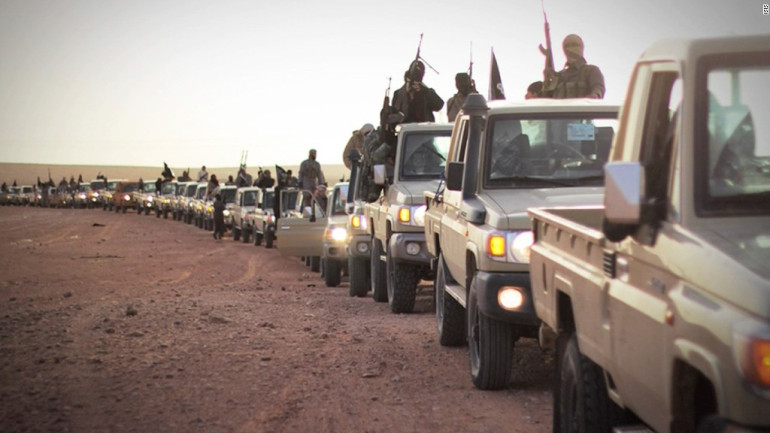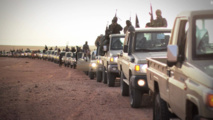The study covered the period from July 2014 to February 2016, was supported by the Syrian and Iraqi forces, and ordered by the European Union institutions. According to the report, improvised explosive devices (IEDs) are produced by the IS "almost on an industrial scale." Components for IEDs do not fall under the sanctions, since most products are household chemicals, microelectronics and civil engineering materials.
Typically, the supply chain is formed in the following way: a large legal regional wholesaler (Lebanon, Iraq, Turkey) orders a large batch of components from a manufacturer, resells the goods to small distributors, and then the components fall into the hands of terrorists.
The report’s authors believe that their main finding is the incredible speed with which components pass from commercial organizations in the Middle East to the ISIL. Often this process takes less than one month, in most cases - about three months. According to the authors, this indicates a "lack of awareness of the danger" from vendors and governments in the region. The authors refrain from direct blaming anyone for complicity in terrorist activities.
The supply chain's "champions" are Turkish companies. Thirteen companies from this country are involved in the supply of terrorists one way or another. Among the components purchased in Turkey are "precursor chemicals, containers, detonation cords, cables and wires." Eight out of thirteen Turkish companies are resellers who sell goods from Brazil, Russia, India, Romania, China and the Netherlands. Iraqi and Syrian intermediaries purchase goods from there because of the country’s geographical proximity to the region, and well-developed mining industry, which makes it easy to find the explosives, the report's authors say.
Goods from India are in the second place in terms of volume. Mostly, the components received from the country are represented by detonators and explosive devices for winding. All Indian ingredients were legally sold under license in Turkey and Lebanon, and the terrorists approached local suppliers to purchase the goods. The same fate awaited electronic components from Japan, Switzerland and the United States. Most of Nokia 105 mobile phones used for remote detonation shells were manufactured in China. Russian components listed in the report have been used by terrorists during the assault on the city of Cobán in September 2014 and January 2015. Carbamide produced in Russia was purchased by the Turkish company EKM Gubre, and then used in the ISIL’s bombs.
source: washingtonpost.com
Typically, the supply chain is formed in the following way: a large legal regional wholesaler (Lebanon, Iraq, Turkey) orders a large batch of components from a manufacturer, resells the goods to small distributors, and then the components fall into the hands of terrorists.
The report’s authors believe that their main finding is the incredible speed with which components pass from commercial organizations in the Middle East to the ISIL. Often this process takes less than one month, in most cases - about three months. According to the authors, this indicates a "lack of awareness of the danger" from vendors and governments in the region. The authors refrain from direct blaming anyone for complicity in terrorist activities.
The supply chain's "champions" are Turkish companies. Thirteen companies from this country are involved in the supply of terrorists one way or another. Among the components purchased in Turkey are "precursor chemicals, containers, detonation cords, cables and wires." Eight out of thirteen Turkish companies are resellers who sell goods from Brazil, Russia, India, Romania, China and the Netherlands. Iraqi and Syrian intermediaries purchase goods from there because of the country’s geographical proximity to the region, and well-developed mining industry, which makes it easy to find the explosives, the report's authors say.
Goods from India are in the second place in terms of volume. Mostly, the components received from the country are represented by detonators and explosive devices for winding. All Indian ingredients were legally sold under license in Turkey and Lebanon, and the terrorists approached local suppliers to purchase the goods. The same fate awaited electronic components from Japan, Switzerland and the United States. Most of Nokia 105 mobile phones used for remote detonation shells were manufactured in China. Russian components listed in the report have been used by terrorists during the assault on the city of Cobán in September 2014 and January 2015. Carbamide produced in Russia was purchased by the Turkish company EKM Gubre, and then used in the ISIL’s bombs.
source: washingtonpost.com



















